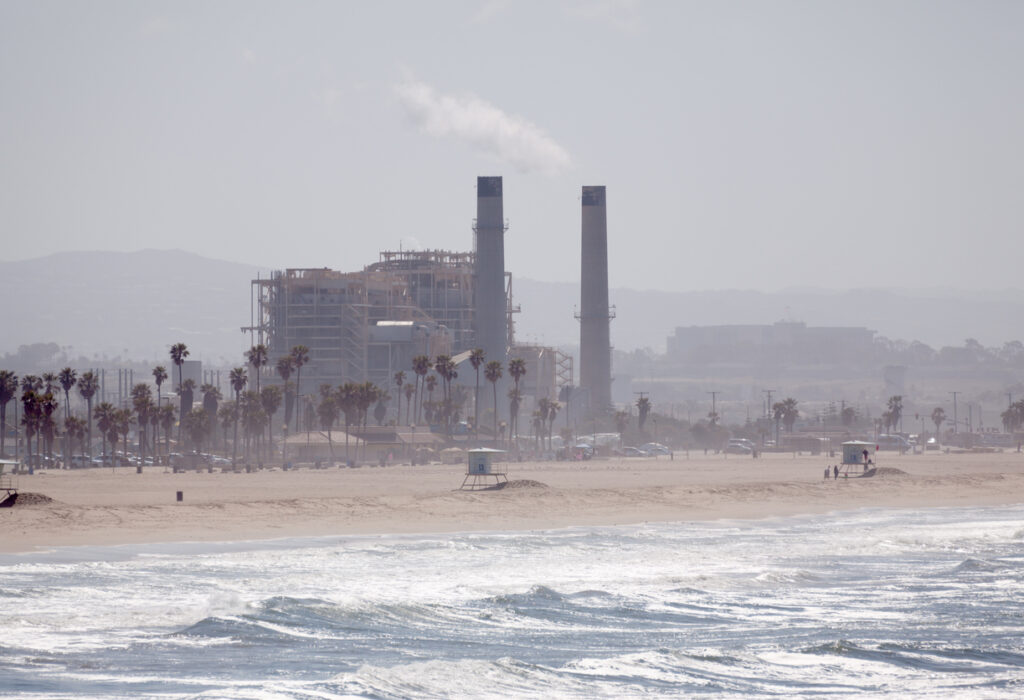
By Jose Torres and Luis Amezcua
Thanks to Governor Newsom’s leadership, California has responded to the COVID-19 pandemic with decisive action. But as hospitals search for ventilators and community members give up paychecks, we must also act with urgency to address a major underlying source of our collective respiratory problems: the polluting gas plants that endanger the health of our lungs and bodies every day.
As residents of Los Angeles — consistently ranked as possessing some of the worst air quality in the U.S — we have seen firsthand the toll this virus is taking in our community. We have seen individuals with pre-existing respiratory conditions needing to choose between shopping for groceries and risking their lives at the cashier counter. But we also understand what triggers these diseases.
Poor air quality caused by the fossil fuel industry has been shown to exacerbate respiratory illnesses, including asthma, lung cancer and chronic obstructive pulmonary disease.
This month, a study released by Harvard’s T. H. Chan School of Public Health confirmed that coronavirus patients living in areas of higher pollution are more likely to die after contracting the virus than those living in areas with less pollution, revealing an alarmingly “large overlap” between COVID-19 deaths and long-term exposure to fine particulate pollution.
Gas power plants, like other polluting industries, are disproportionately found in Black, Brown, and communities with low incomes — making these neighborhoods yet another frontline in the battle against COVID-19. The racial inequities of our healthcare system, including a lack of pre-emptive medical care and testing for this virus, has meant that more black Americans are dying from COVID-19 than any other group of people.
COVID-19 has reminded us that denying science and delaying action is lethal. Now, we ought to apply that lesson to our efforts to protect public health from fossil fuel pollution.
Unfortunately, a recent decision by the California Public Utilities Commission (CPUC) continues to slow-walk our progress on stopping gas-fired power plants from polluting with little restriction, exacerbating the adverse health impacts experienced by many working families.
The CPUC’s hesitation to enact a necessary science-based carbon emission target follows a troubling pattern of highly questionable decisions.
Just last fall, the CPUC decided to extend the operations of four once-through cooling gas plants that were already set to retire at the end of this year, even though there wasn’t strong evidence presented that the extra power plants were necessary. These decisions by the CPUC did not adequately consider the full breadth of available renewable energy resources, and may represent a reversal with state climate laws, specifically Senate Bill 100, which requires the state to decarbonize its grid no later than 2045.
By planning for the retirement of gas, we can mitigate the health, economic, and energy management impacts of unplanned retirements — and achieve our climate goals. A just and orderly transition can prevent the unintended harm that a disorganized and rushed transition could trigger, and instead improve energy equity, affordability, reliability, and good jobs with benefits.
Our present moment is frightening. But has also demonstrated our incredible capacity to act together in meeting a crisis head on. As we continue to respond together to this crisis, we cannot lose sight of the threats pollution poses to our daily lives and our climate.
The good news is that we have seen that change is possible, and taking bold action to transition from fossil fuels to clean energy is far less disruptive than the actions we have taken so far on coronavirus. That’s because we already have the green technology to transition away from gas plants, and we know it is possible to implement sensible policies that can prioritize protecting the livelihoods of working families, and the most vulnerable.
Without decisive action and planning now, we’ll find ourselves forced to make more painful decisions later that intensify economic and environmental inequities, and ultimately hinder the life of every Californian. It’s within Governor Newsom’s power to take the first step to get us there. We have an opportunity to show cities and the rest of the country that a transition away from polluting energy sources can be done right, and ensure our communities and workers not only survive but thrive during and after this transition.
Jose Torres is the Energy Equity Director at the California Environmental Justice Alliance and a member of the Regenerate California Campaign.
Luis Amezcua is a Senior Campaign Representative for the Sierra Club’s My Generation Campaign and a member of the Regenerate California Campaign.
Posted By
Regenerate California
Read More
Press Release
Tags
clean energy, Coronavirus, COVID-19, pandemic